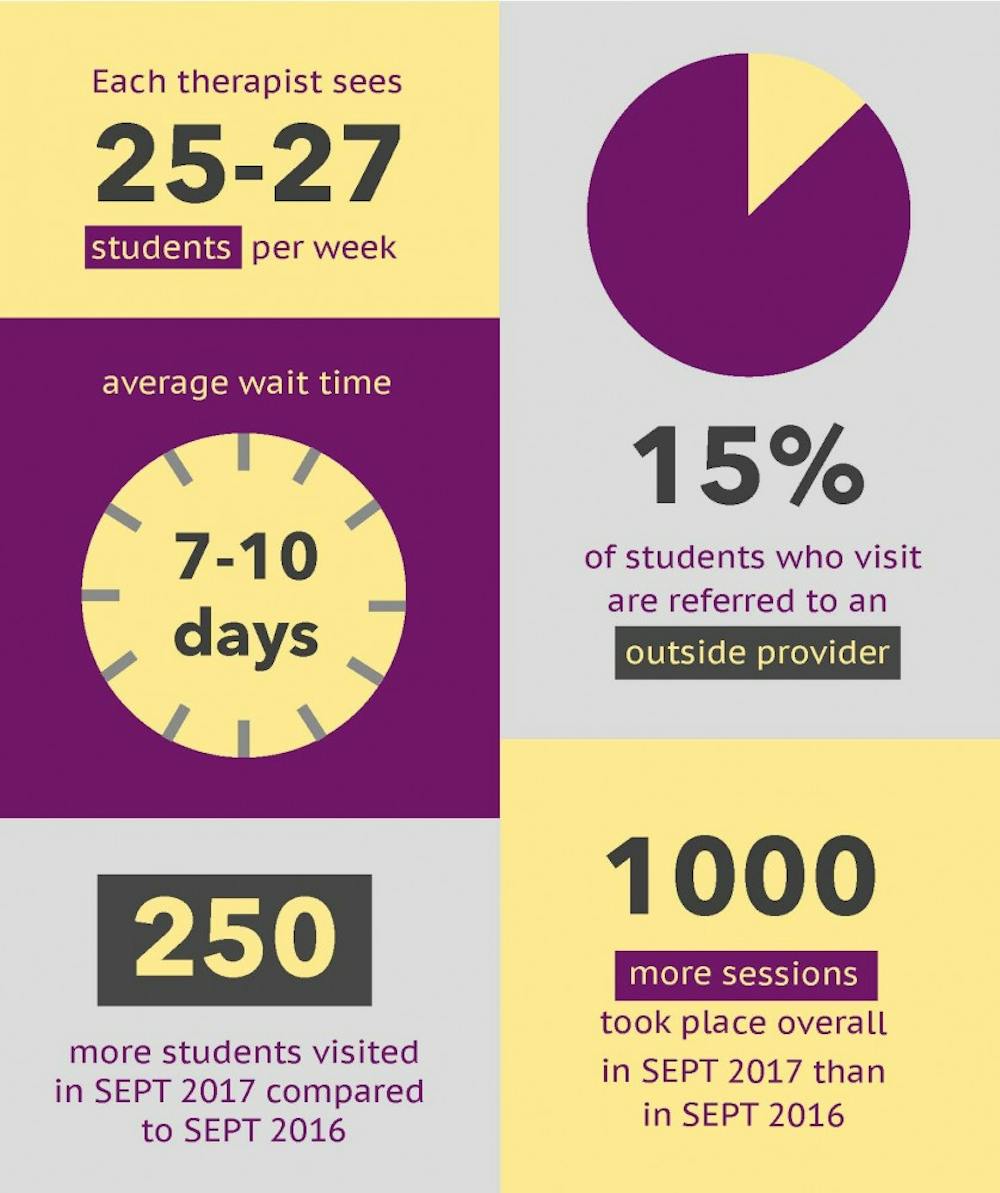
After the Campus Conversation highlighted several concerns related to mental wellness within the Penn community, Penn President Amy Gutmann announced in an email that Penn would undertake a series of steps to evaluate and improve mental health — including an administrative review of Counseling and Psychological Services.
Two months after the announcement, a team of management experts from Penn Medicine has finished collecting data on the general operations of CAPS for the report. The data, however, is not yet available, and officials from CAPS said they are not sure when it will be released.
The Penn Medicine team has collected data on CAPS operations through interviews with staff members, patients, Penn students, and other Philadelphia residents. The cumulative report will include information on treatment frequency and wait time, scheduling processes, and staff workload.
“It’s a review sort of on the machinery of CAPS,” CAPS Director of Outreach and Prevention Meeta Kumar said. “They are looking at how efficient we are and how well we’re working.”

The review will address past CAPS complaints from students about lengthy wait times, which CAPS Director Bill Alexander said is still a problem because of the rising number of students visiting CAPS each month.
In September 2017, 250 more students visited the center than in September 2016. Overall, CAPS had 1,000 more sessions in September 2017 than in September 2016.
Alexander said that was "a huge increase to get hit with."
Kumar said that the average wait time this year is seven to 10 days, although in the past students have reported waiting three and a half weeks for a non-crisis CAPS appointment.
“We can understand that to all students their needs seem urgent. But to get everyone in as quickly as possible, with the growing demand, that’s difficult,” Kumar said. “We are trying to figure out how to best meet the increased demand.”
Alexander said that CAPS does not plan on adding more patients per therapist, each of whom already sees 25 to 27 clients every week.
Although this report is still pending, Alexander’s goal for this semester is to implement a smoother referral process. Approximately 15 percent of all students who visit CAPS are referred to an outside provider, but no formal referral system has been put in place to streamline the information given to students. As a result, students are often unaware that CAPS does not traditionally offer long-term treatment and can sometimes only be alerted to that midway or toward the end of their treatment at CAPS.
The report follows Penn's launch of a new wellness website intended to consolidate the University's resources.
Penn Benjamins Director of External Affairs and Wharton senior Phillip Isom said other wellness resources not assessed in the review, particularly student-led groups like Reach-a-Peer Helpline, may be underutilized.
“The people who need a professional medical doctor really need CAPS, but CAPS ends up with a lot of people who just need stress management and peer listening. There’s a difference,” Isom said. “It’s all related to students and CAPS not being 100 percent on the same page on what services are offered.”
The Daily Pennsylvanian is an independent, student-run newspaper. Please consider making a donation to support the coverage that shapes the University. Your generosity ensures a future of strong journalism at Penn.
Donate







